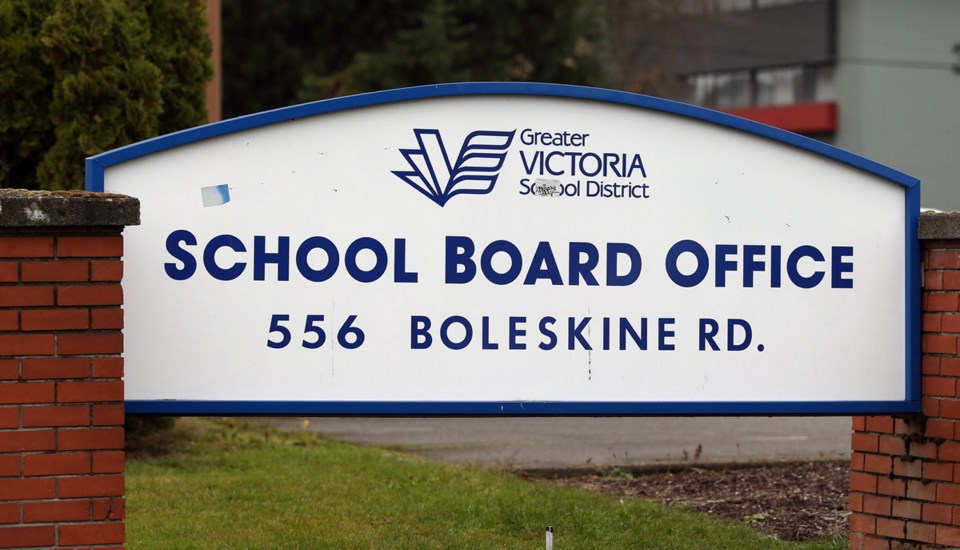Tara Ehrcke and Faro Sullivan are with Parents 4 Climate.
At its June 2019 meeting, the Greater Victoria Board of Education passed a motion recognizing the climate emergency, and committing to develop a plan in alignment with the United Nations targets to keep warming at or below 1.5 degrees. This was significant, as this was the first school district to declare an emergency in all of Canada.
Committing to meet the UN targets, outlined in the latest report by the Intergovernmental Panel on Climate Change, means reducing emissions by 45 per cent by the year 2030 and to zero by 2050. This will take extensive efforts.
Unfortunately, the total emissions reported for the district in 2018, 4868 tonnes, are actually higher than the emissions from both 2015 and 2016. Emissions have plateaued and are not improving, despite required planning and reporting to the province.
The majority of the emissions in relation to a school district come from three places — school buildings, transportation of students and employees to and from schools and district offices, and the embodied emissions of all the equipment used for the operation of the district. So these are the areas that need to be addressed, to make significant carbon reductions.
To get a sense of how challenging meeting the targets will be, consider only the school buildings. The district owns and maintains 44 schools plus the district office and facilities building. To reduce the emissions from these buildings by 45 per cent by 2030 would mean full retrofits to zero carbon of 20 buildings in the next 10 years, or two buildings per year.
This is a significant undertaking, but to actually meet the targets, this is what must be done.
And yet, the district has not conducted a review of their next major renovation of Victoria High School, in order to consider climate impacts. The current renovation plans include no substantive attention to the emissions profile of the building, and even involve leaving the existing old, inefficient windows in place.
Simple, cost effective, but important, changes are not happening. For example, the City of Victoria, as part of its climate leadership plan, is offering rebates for residents to upgrade oil boilers to heat pumps. They recognize that many people choose gas for their upgrade, but this decision locks in much higher emissions for decades into the future. It is not a pathway that will lead to adequate emissions reductions. Yet the school district last year updated their old oil boilers with gas – another fossil fuel. It is no wonder that emissions for the district have plateaued.
It is five months since the climate emergency motion was passed. However, the school board appears to have done almost nothing to implement the motion, other than sending a letter to other school districts urging them to pass similar motions. Our letter to the superintendent requesting plan details went unanswered.
After a presentation to the board, by concerned parents, students and teachers, at the November operations meeting, an email went to all staff urging us to remember to turn off the lights, to save on our greenhouse gas emissions. At this point, this is not the type of action we need.
The school board needs to step up with a bold response, and shake off its dependency on carbon offsets and basic recycling programs. The urgent call to action from scientists has come because turning out lights and recycling don’t come anywhere near to what we need to do.
Despite decades of citizens “doing their part” with everyday actions, emissions continue to rise. A report released in November shows that world production of fossil fuels will be 120 per cent above the limit we need to meet the 1.5-degree warming target.
The Victoria School Board unanimously passed the first climate emergency motion in Canada. By definition, an emergency is a serious situation requiring immediate action.
The board’s inaction negates the urgency and responsibility that board members accepted by declaring such a motion. They need to be held to account.
School District 61 has an opportunity to step up where our political leadership is failing us. If world leaders won’t make the drastic changes that we need, then we can start here, at our community level. As Greta Thunberg would say, what matters is not what we say, but what we do. SD61, where is your plan?



